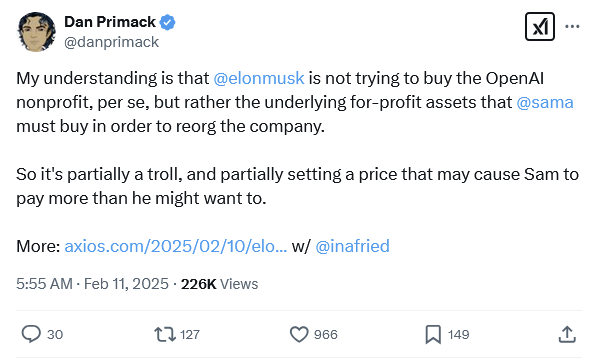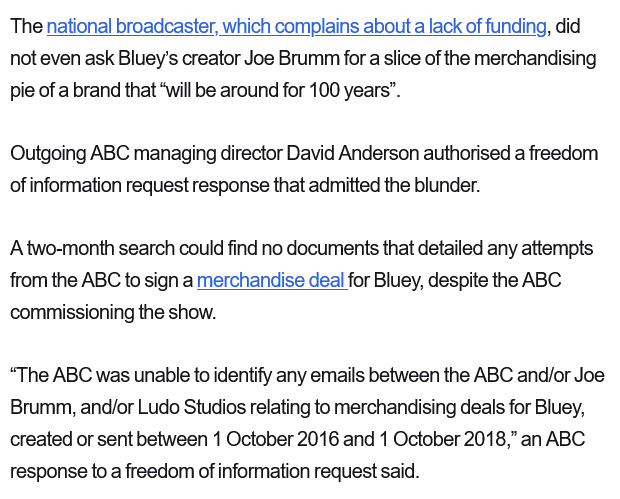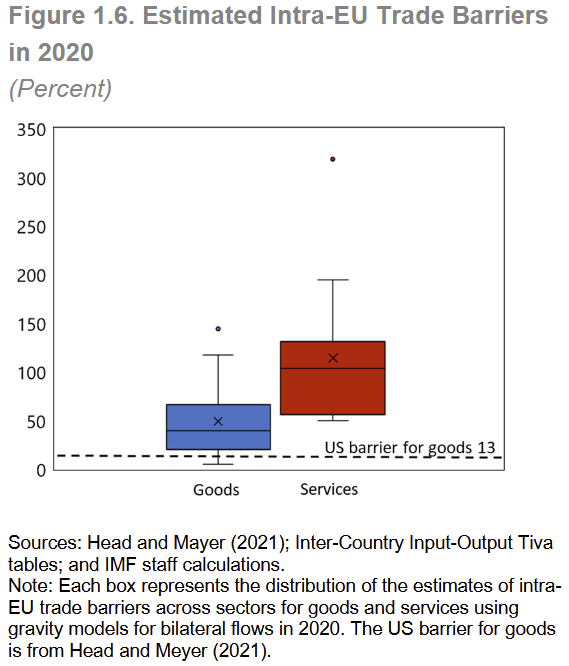Don't nationalise Rex, A blow for democracy, Will Trump tariff Australia, Beating megafires, and When billionaires feud
The Albanese government dropped a policy bomb on Sunday: a complete ban on foreign investors and temporary residents purchasing established homes for two years. I would write something about it, but I already did when Dutton proposed the same policy a couple of weeks ago.
TL;DR: it’s a gimmick that will do nothing to improve housing affordability (prices down a bit, rents up a bit). But it’s probably a smart political move ahead of the election, given the government’s failure to achieve any meaningful outcomes on the housing front.
On to more interesting stuff!
Please don’t nationalise Rex
Back in August last year, I wrote that the government should let Rex fail:
“My advice is to let Rex fail and be reborn under new ownership, and for the government get on with the long-overdue job of reforming the aviation sector. Everyone knows what needs to be done, so just… do it!”
Alas, the Albanese government instead looks to be taking its economic advice from the Greens, who had previously called for Rex to be nationalised:
“The federal government has said it may step in to purchase Rex if a commercial buyer is not found for the collapsed airline.
The announcement on Tuesday night, which comes after $80 million in funding and the purchase of $50 million in Rex debt from financier PAG, is the clearest signal yet that the airline could become the first to be owned by an Australian government since Qantas was privatised in the 1990s.”
The reason there’s no buyer is because the Albanese government is trying to sell the airline, warts and all. Rex owes its creditors $500m that was run up as part of the previous owner’s foolish attempt to expand into the “Golden Triangle” (Sydney, Melbourne, Brisbane), rather than focus solely on the heavily subsidised regional routes that were its bread and butter.
Any new buyer would have to take on that debt, along with whatever agreements Rex had struck with the Transport Workers’ Union. Neither condition is likely to be all that appealing, hence the lack of interest.
So I’ll say it again: let Rex fail. The profitable and heavily subsidised regional routes won’t go away, they’ll just be filled by other airlines:
“If we needed to stand up additional flying, we can do that pretty quickly. We’ve got access to more aeroplanes, we’ve got our own internal training organisation, so we can pump pilots through pretty quickly, especially if they were ex-Rex pilots where they only need a Dash 8 type rating. We can do that in a matter of weeks,’ he [Skytrans CEO Alan Milne] said.
‘We’ve got the capability, as do a lot of other airlines – everyone’s there ready to stand up and put this additional capacity into the market if it’s needed.
‘So, we’re a little bit surprised that the government’s just ploughing more and more money into what was essentially a failed business model.”
I know there’s an election coming up and they’ll be terrified of even a single, high-profile job loss or business failure. But that’s no excuse for how poorly this entire Rex saga has been managed by the Albanese government from the get-go.
Competition is good. This is bad.
Last week the federal Labor and the Coalition parties got together and passed one of the more anti-democratic laws I’ve seen in recent years:
“The major parties have struck a deal to pass changes to electoral funding laws, with the same structure but higher thresholds than Labor had initially proposed.
The maximum amount an individual donor can give to a candidate or political party will be $50,000 instead of $20,000, and the threshold above which donations must be disclosed will be $5,000 instead of $1,000.”
They may as well have called the bill the Anti-Clive Palmer Act 2025, because that’s basically what it is. It further entrenches Australia’s two-party system by eliminating even the possibility that a political outsider like Clive Palmer would be able to spend… $123m for a single Senate seat.
Hardly seems worth it. Except that it has the added bonus of increasing public funding for any party that garnishes more than 4% of first preference votes by nearly 70%, a group that conveniently includes every single Labor and Coalition politician. It also contains a loophole that will benefit any party with multiple branches:
“The amendments fail to plug a loophole that allows a donor to give separately to all of the branches attached to a political party if each individual contribution is just under the threshold. For example, a donor could spread almost $45,000 to the nine state and federal branches of the ALP without being required to declare the amounts
…
The government has also failed to remove the patently unfair provisions relating to ’nominated entities’, which are likely to be used by the major parties as investment vehicles. As the Victorian Electoral Review Expert Panel has rightly noted, such entities: provide some (parties) with significantly more funds, creating a risk that those (parties) drown out other voices.”
This is a good deal for Labor and the Coalition, but an absolute L for democracy and taxpayers.
Might Trump come for Australia?
It really is going to be a wild four years. Fresh off the Canada and Mexico on-again off-again tariffs, Trump announced that he would soon be imposing reciprocal tariffs on everyone:
“US President Donald Trump has unveiled a roadmap for charging reciprocal tariffs on every country that puts duties on US imports.
…
Trump’s reciprocal tariffs would match the higher duty rates charged by other countries, he said.
They also would aim to counteract non-tariff trade barriers such as burdensome regulations, value-added taxes, government subsidies and exchange rate policies that can erect barriers to the flow of US products to foreign markets.
The effort also aims to launch negotiations with some countries to reduce these barriers.”
This is a rare case where Trump might actually be on to something. Reciprocal tariffs can be OK in certain circumstances, as Adam Smith recognised:
“There may be good policy in retaliations of this kind, when there is a probability that they will procure the repeal of the high duties or prohibitions complained of.”
However, Smith didn’t think such a strategy was likely to work because the “insidious and crafty animal, vulgarly called a statesman or politician” imposing the tariffs doesn’t personally face the full costs of them.
Trump also appears to mistakenly believe that value-added taxes (VATs) are equivalent to tariffs and should be part of his plan for reciprocity.
They’re not. As trade guru Doug Irwin recently pointed out:
“Another fallacy is that other countries’ value-added taxes constitute discrimination against the US. Most European countries tax imported goods because they also levy taxes on domestic producers. In the end, VATs are taxes on consumption and don’t discriminate against imports.”
That’s a problem for Australia, because it means Trump might consider the 10% GST equivalent to a protectionist tariff (again, it’s not). He might also retaliate against Australia because of the Morrison/Albanese government’s extortionary ’link tax’ imposed on Meta and Google.
Whatever the case may be we’ll know more by 1 April, which is the date by which Trump said his administration will complete its “studies”.
Beating megafires
The Institute for Progress’ Santi Ruiz has a good essay on fires and the most effective way to combat them. Wildfires are extremely damaging: not only did California’s 2020 fires cause enormous damage to life and property, but it also undid 20 years of the state’s climate policies.
So, how do you fight fire? With fire:
“We’re looking at climate change combined with years of mismanagement and poor community design creating a perfect storm here.
For a long time, we got really good at suppressing fires. We took fire out of landscapes that needed to thrive. And what we’re seeing is climate change and years of fire exclusion in these areas have made it so that we’re pushing the bounds of what we’re capable of suppressing here. It’s overwhelming all of our systems.
…
Once you’ve taken fire out of an ecosystem, it’s really hard to restore it without going in and doing a lot of physical labour to get the land ready for it. By taking good fire out, you’ve left overly dense forests. Then you combine that with drought and climate change, and you’ve got tinderboxes everywhere. You could not reintroduce good low-intensity fire there if you wanted to right now.
So you often have to do what’s called mechanical thinning, which is going in and pulling out dead trees and other fuels, so that you can get the landscape ready for prescribed fire.
Now, mechanical thinning alone can actually do a lot to improve wildfire risk. If you do mechanical thinning and prescribed fire, you can reduce the intensity of fires on forested landscapes by 70%.”
The reason California doesn’t do much of that is because laws like the National Environmental Policy Act (NEPA) and Clean Air Act make “it very hard for us to get good fire on the ground”.
Preventing the greatest theft in human history
The ongoing turf war in the AI space is truly fascinating. It’s increasingly obvious that there is no moat: if you’re in the AI business, you’re not going to be the next Microsoft or Google.
But that doesn’t mean there’s no money to be made, especially if you sit at the top of a non-profit and desperately want to get paid for your hard work.
Enter OpenAI’s Sam Altman and his feud with former partner Elon Musk:
“A Musk-led investor group on Monday submitted an unprompted $97.4 billion bid to buy OpenAI. The bid immediately garnered staunch refusals from CEO Sam Altman, who said in several public interviews at an AI summit in Paris that the company — and its mission to ensure artificial intelligence benefits humanity — is not for sale.”
Musk knows that Altman would never sell to him. The offer, which would have been withdrawn if “OpenAI ceased its attempts to convert itself from a non-profit”, was nothing but an attempt to drive up the price Altman would have to pay:

OpenAI is owned by a non-profit holding company. To make the really big bucks, Altman needs to purchase “all of the rights and assets that the non-profit currently owns”, a figure rumoured to be in the vicinity of $40 billion.
Altman is doing it off-market, which makes it difficult for an auditor to determine whether the non-profit’s board had fulfilled its fiduciary duty. Not any more:
“By making the offer, Musk makes it obvious that OpenAI was dramatically undervaluing these assets — and draws attention to the fact that Altman, in his capacity as a board member of the non-profit, is helping to negotiate the sale of all the non-profit’s assets to Altman, in his capacity as the CEO of the for-profit, all at what now appears to be a fire-sale price.”
Say what you will about Musk (for example, that he’s using his position in government to further enrich himself), but at least in this case he’s probably doing the world a favour by preventing Sam Altman from effectively stealing billions from a non-profit.
Not-so fun fact
The ABC blew a deal potentially worth billions of dollars by not seeking a slice of Bluey merchandise:

The interests of workers, management and owners are rarely aligned. That problem, known as the principal–agent problem, is worse when there’s no connection between performance and profitability.
Anyone who wants more businesses run like the ABC (i.e. by the government) first needs to explain how they plan to prevent proverbial billion-dollar bills being left on the footpath.
Further reading
- Funny how no one was beating down Melania’s door before the election. Trump is the King of crony capitalism: “The first lady’s cut [of the Amazon documentary deal] is more than 70% of the $40 million, according to people familiar with the matter. And they’re still looking for more: Melania’s agent has been trying to sell ‘sponsorships’ for the film—starting at $10 million—to prominent CEOs and billionaires who were at the inauguration, according to people familiar with the matter. Buyers would get thanked at the end of the credits and be invited to the premiere.”
- This is actually great news, if it eventuates: Musk wants to remove the ban on supersonic travel.
- Food for thought for the next recession: “[T]he evidence suggests that temporary cash transfers to households likely provided little or no stimulus to the macroeconomy,” including Australia’s 2008-09 cash handouts and infrastructure investment.
- If Australia implemented New Zealand’s more relaxed approach to vaping regulation, it would kill the black market and accelerate the reduction in adult smoking, improving public health – especially for disadvantaged and Indigenous populations.
- COVID vaccinations probably led to fewer deaths: “The results above don’t strictly prove causality from vaccines to fewer deaths, of course. However, if one wants to claim that the vaccines didn’t work or were net harmful, one would have to come up with a list of plausible confounders that reverses the results.”
- To counter Trump, Canada first needs to take a long, hard look in the mirror: “Supply management in the dairy and poultry sectors reduces the income of the average Canadian by between $276 and $444 and has pushed between 133,000 and 189,000 people below the poverty line.”
- To counter Trump, Europe first needs to take a long, hard look in the mirror: “The IMF estimates that Europe’s internal barriers are equivalent to a tariff of 45 per cent for manufacturing and 110 per cent for services. These effectively shrink the market in which European companies operate: trade across EU countries is less than half the level of trade across US states. And as activity shifts more towards services, their overall drag on growth becomes worse.”

Comments
Comments have been disabled and we're not sure if we'll ever turn them back on. If you have something you would like to contribute, please send Justin an email or hit up social media!
